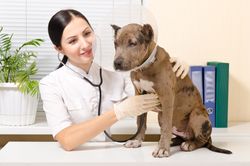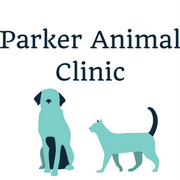
Spay and neuter procedures are commonly performed by veterinarians, but many pet owners still have questions about the surgery. Any type of surgery on your four-legged family member can be stressful. However, spaying and neutering are perfectly safe procedures. Use the following guide to learn more about this common surgery.
A Pet Owner’s Guide to Spaying & Neutering
What’s the difference between a spay and neuter procedure?
These surgeries are performed to remove the reproductive organs of either male or female pets. Spaying is the surgical removal of the reproductive parts of female pets, including the ovaries, fallopian tubes, and uterus. Neutering removes the testes from a male dog or cat.
Will my pet act differently after the procedure?
There will be some behavioral changes in your pet after being spayed or neutered, but the majority are beneficial. After the procedure, pets are less likely to urine mark their territory, and it can also reduce aggression in male dogs. Since the animals will no longer be occupied with searching for a mate, they often become more interested and protective of you and your family.
Are there health benefits?
 Pets that have been spayed and neutered live longer and healthier lives. When female pets are spayed before their first heat, it reduces the risk of developing uterine infections and breast tumors later in life. Neutering procedures can prevent males from developing testicular cancer and reduce the chance of prostate problems.
Pets that have been spayed and neutered live longer and healthier lives. When female pets are spayed before their first heat, it reduces the risk of developing uterine infections and breast tumors later in life. Neutering procedures can prevent males from developing testicular cancer and reduce the chance of prostate problems.
When should I have my pet spayed or neutered?
There is no exact timeframe that the procedure needs to be performed, but it can be done as early as eight weeks old. Many vets recommend having female pets spayed prior to their first heat or estrous cycle to most effectively prevent future health problems.
Older pets can also undergo the procedure, but it does become riskier. Consult with your veterinarian to find out if your pet should undergo the surgery.
Are there risks involved?
As with any other type of surgery, spaying and neutering are not 100% risk-free. However, they are very common and safe procedures.
The vet performs a thorough physical examination and does preoperative blood work to ensure your pet is in good health. The animal is also placed under anesthesia so they don’t experience any pain.
For safe and trusted spay and neuter procedures, visit Parker Animal Clinic in Clarksville, AR. Their highly trained team of veterinarians has been providing pet care services to local residents for almost 20 years. They’ll help you decide if the time is right to spay or neuter your pet, and they will ensure the procedure is safe. They also offer vaccinations, pet dental care, and general checkups. Visit them online for more information, or call (479) 754-5656 to schedule an appointment. You can also get medications and specialty dog food on their online discount store.
About the Business
Have a question? Ask the experts!
Send your question

